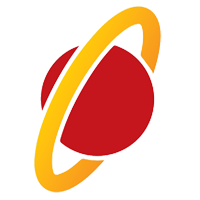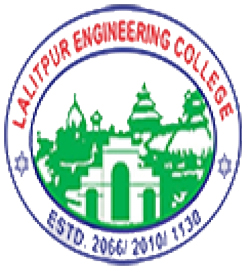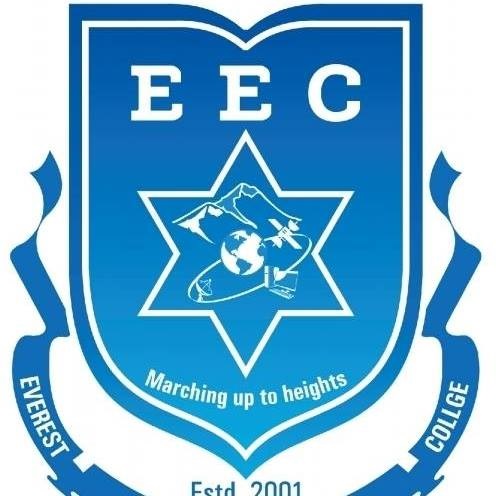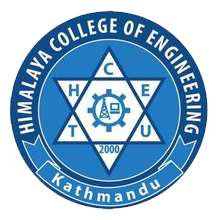Overview
Kantipur Engineering College (KEC) is a Tribhuvan University–affiliated campus located in Dhapakhel, Lalitpur. Since 1998 it has offered undergraduate engineering education with an emphasis on practical learning and field exposure within the Kathmandu Valley. Current bachelor’s programs include Civil Engineering, Computer Engineering, and Electronics, Communication & Information Engineering. Admission follows the Institute of Engineering (IOE) entrance system.
The college maintains a scholarship and awards policy and hosts research and exhibition activities through its Research, Training & Consultancy Division (RTCD).
-Building.jpg)
Quick Highlights
-
Established: 1998
-
Affiliation: Institute of Engineering, Tribhuvan University (TU)
-
Location: Dhapakhel, Lalitpur, Kathmandu Valley (campus setting with access to city infrastructure)
-
Undergraduate programs: B.E. in Civil; B.E. in Computer; B.E. in Electronics, Communication & Information (ECI)
-
Admission route: IOE computer-based entrance; merit-based intake
-
Scholarships & awards: Four-year, semester, local-ward, and staff-children schemes; excellence awards; additional rebates per policy
-
Research & publications: RTCD activities; annual KEC Conference; International Journal on Engineering Technology (InJET), indexed on NepJOL
-
Professional recognition: Granted “Permanent Status” by the Nepal Engineering Council on 16 May 2025
-
Future plans (academic pipeline): Preparatory work for Electrical Engineering and Architecture
Overview
KEC began teaching undergraduate engineering in 1998 under Tribhuvan University’s IOE umbrella. Its location in Dhapakhel places students close to project sites, consultancies, and public infrastructure within the Valley, which supports fieldwork and applied assignments.
Over time, the college has built a routine of student exhibitions, faculty-led research, and collaborations that supplement classroom teaching. The college’s academic governance aligns with TU’s semester system, IOE curricula, and Nepal Engineering Council expectations for professional readiness.
Academic Programs Offered
B.E. Civil Engineering
Aim: Prepare graduates who can plan, analyze, and supervise works across transport, structures, water, geotechnics, and environmental practice within Nepal’s terrain and urban settings.
Curricular focus (representative areas):
-
Surveying, geomatics, and mapping methods
-
Structural analysis and detailing; concrete and steel coursework
-
Materials and construction methods; contract administration
-
Hydrology, hydraulics, and water systems
-
Soil mechanics and foundation topics
-
Transportation planning and pavement topics
-
Project work and a final-year capstone
Learning environment: Studio-style drawing work; laboratory sessions in materials, hydraulics, and soil; site visits during key courses; a major project in the final year anchored to local problems where possible.
Graduate pathways: Field and office roles in consulting firms, contractors, local governments, and development projects; preparation for NEC registration and competitive exams.
B.E. Computer Engineering
Aim: Build competence in computing fundamentals and systems thinking, with pathways into software development, networks, and embedded systems.
Curricular focus (representative areas):
-
Programming fundamentals; data structures and algorithms
-
Computer architecture; operating systems and computer networks
-
Database systems and information management
-
Web and mobile application development
-
Embedded systems and microcontrollers
-
Electives and project-based coursework in later semesters
Learning environment: Department labs for programming and hardware interfacing; term projects and a final capstone; student club activities that encourage peer learning and contests.
Graduate pathways: Software developer, systems analyst, network administrator, QA/testing roles, and entry-level research roles with further study.
B.E. Electronics, Communication & Information Engineering (ECI)
Aim: Develop core competence in electronics and communication systems and their information-centric applications.
Curricular focus (representative areas):
-
Analog/digital electronics; signals and systems
-
Communication systems; networking concepts
-
Microprocessors and interfacing
-
Control fundamentals and instrumentation
-
Elective tracks aligned to communications and embedded applications
-
Minor project and final-year group work
Learning environment: Circuit labs, simulation work, and device testing assignments; seminars with external practitioners when available.
Graduate pathways: Roles in telecom operations, electronics support engineering, embedded systems, networking support, and software-hardware integration.
Programs in Preparation
KEC prospectus materials indicate preparatory work for Electrical Engineering and Architecture—subject to approvals and institutional timelines. Applicants should confirm status during the admission cycle.
Admission Process
1) Eligibility for the IOE Entrance
-
10+2 Science or equivalent with Physics, Chemistry, and Mathematics, with at least Grade C in each subject under letter grading; or 45% in a relevant diploma or equivalent.
-
The IOE entrance is a computer-based objective test held centrally; duration and sections are set by IOE and may be updated each year.
2) Entrance Registration and Exam
-
Follow IOE’s official notice for the application window, exam center, and test syllabus.
-
Keep scanned documents and photos as per IOE instructions.
-
Sit for the CBT on the scheduled date and retain your score/merit information.
3) College Application and Selection
-
After obtaining an eligible IOE score, apply to KEC through its admission portal or as guided by the college.
-
KEC admits students based on the IOE merit list among applicants who select KEC and meet criteria.
-
International applicants: KEC notes a separate process via a special entrance committee; confirm current requirements with the admission office.
4) Documents (typical)
-
IOE admit card/score record
-
Academic transcripts and character certificate
-
Citizenship or passport copy
-
Recent photos
-
Any category documents for scholarships (if applicable)
5) Intake Window
-
The main intake usually occurs around August–October, aligned with IOE’s schedule. Confirm dates for the current year.
Teaching Faculty and Learning Methodology
KEC’s departments combine lectures, lab sessions, and project work. First-year students are supported by the Department of Engineering Science & Humanities, which handles foundational courses in Physics, Chemistry, Mathematics, communication skills, and mechanical-related basics before students move deeper into their majors. This staged approach helps students adapt to the academic load and classroom practices used across engineering.
Across programs, assessment blends internal tasks with semester examinations under TU. Departments incorporate field observations, model-based assignments, and final-year projects that ask students to frame a problem, plan a solution, run experiments or computations, and present a report. Student clubs and RTCD-run events add practice beyond coursework.
Infrastructure and Learning Facilities
-
Laboratories and workshops: Discipline-specific labs for materials, hydraulics, soil, circuits, and computing; workshops for hands-on tasks.
-
Library: Texts and reference materials with space for quiet study; e-resources referenced in campus publications.
-
Classrooms: Digital teaching aids for theory courses and seminars.
-
Transport: Subsidized bus routes within the Valley (check current routes with the office).
-
Campus services: Canteen, photocopy and stationery point, courts/grounds for games, and first-aid/accident coverage as noted in campus materials.
Student Life and Campus Experience
Students participate in academic clubs (Computer, Electronics/ECI, Civil) that host talks, short trainings, and peer sessions. A student council and quality-circle practices are highlighted in college documents, which typically coordinate activities and feedback loops.
Societies and communities support reading, culture, and peer welfare initiatives, subject to annual plans and student interest. For skill growth, RTCD runs periodic workshops tied to projects and employability.
Extracurricular Activities (ECA)
-
KEC Conference (annual): A one-day conference that invites submissions from students and academics; earlier editions have run since 2018, with recent proceedings featured through InJET on NepJOL.
-
KEC LITE Technical Exhibition: An inter-college showcase of models and project work hosted by RTCD, helping students present prototypes and meet peers from other campuses.
-
Guest lectures and short trainings: Department-led events focusing on tools, coding, or field practices, usually scheduled each semester.
Scholarships and Financial Support
KEC’s Scholarship and Excellence Award Policy provides several routes of support (eligibility and quotas are governed by the official policy—applicants should verify current terms each year):
-
Four-Year Scholarship: Monthly and semester tuition fees waived for the full four years as decided by the management committee (policy-defined criteria apply).
-
Semester Scholarship: Monthly and semester tuition fees waived for one semester under policy conditions.
-
Local Student Scholarship: 35% of total tuition fees waived for permanent residents of Lalitpur Metropolitan City Wards 23 and 24 (as per policy and documentation).
-
Teachers’/Staff Children Scholarship: 100% monthly tuition and 50% semester tuition waived for children of full-time employees (policy conditions apply).
-
Other rebates: Additional category-based rebates, including for female students and merit-based considerations tied to IOE entrance rank.
The policy also outlines Excellence Awards such as semester toppers, stream-specific recognitions (e.g., best in drawing or structural analysis), best project groups, and honors for performance in ECA and sports. Award types and criteria are administered through committees named in the policy.
Achievements and Institutional Milestones
-
NEC Permanent Status (16 May 2025): Recognition granted by the Nepal Engineering Council, an important marker for the institution’s programs and graduate recognition.
-
Research and publication track: RTCD activities, KEC Conference series, and InJET publication on NepJOL, reflecting a platform for campus-linked research.
-
Quality systems: College materials indicate participation in the UGC Nepal Quality Assurance & Accreditation (QAA) process, including Self Study Report submission. Applicants and partners should check the latest QAA status with the college or UGC.
Why Choose This Institution?
-
TU–IOE alignment: Programs follow the IOE framework widely used by public and affiliated campuses.
-
Valley access: Dhapakhel location allows convenient fieldwork, site visits, and outreach to Kathmandu-Lalitpur agencies.
-
Structured support: Foundational teaching in the first year, department clubs, and RTCD events offer steady academic growth opportunities.
-
Scholarship pathways: Multiple scholarship and award categories documented in an official policy.
-
Professional standing: NEC Permanent Status adds weight to graduate credentials.
Message from the Principal
Engineering study asks for patience, practice, and a willingness to solve real problems. At KEC we try to make that journey clear and supportive. First-year students receive careful grounding in science, mathematics, and communication before moving deeper into their fields. Classes combine lectures, labs, and project work, and teachers remain available for guidance beyond the timetable. Clubs and RTCD activities add a forum to test ideas and present work. Use these opportunities, manage your time well, and keep your ethics strong; the habits you form here will carry far. -
Message from the Chairman
Since 1998, Kantipur Engineering College has grown as a community-rooted campus under Tribhuvan University. Our purpose is simple: prepare engineers who think carefully, work safely, and serve society. The Nepal Engineering Council granted us Permanent Status in May 2025, and we are progressing through the UGC QAA process with our Self Study Report submitted. We maintain safe buildings, active laboratories, and open spaces that support field-based learning. Scholarships widen access, while RTCD events and publications encourage inquiry. I welcome students and parents who value honest effort, steady progress, and public value in engineering. -
Conclusion
KEC is an IOE-affiliated campus with three undergraduate engineering programs, a published scholarship and awards framework, and recurring academic events that invite students to present work and engage with peers. Its Valley location supports field exposure, and its NEC Permanent Status strengthens professional recognition.
Frequently Asked Questions (FAQs)
1) Which bachelor’s programs are currently running at KEC?
B.E. Civil, B.E. Computer, and B.E. Electronics, Communication & Information.
2) How do I get admitted to KEC?
You must qualify through the IOE computer-based entrance, then apply to KEC for selection based on the IOE merit list among applicants who choose the college.
3) What are the minimum eligibility requirements for the IOE entrance?
10+2 (Science) or equivalent with Physics, Chemistry, Mathematics and at least Grade C in each subject, or 45% in a relevant diploma/equivalent. Follow the current IOE notice for any changes.
4) Does KEC offer scholarships?
Yes. The official policy mentions four-year and semester tuition waivers, a local-ward (Lalitpur-23/24) scholarship, and a staff-children scholarship, plus additional rebates (including for female students) and merit considerations. Criteria and numbers follow the policy.
5) What recent institutional milestone should applicants know about?
NEC granted Permanent Status to KEC on 16 May 2025.
6) Is there an official research or publication platform?
Yes. RTCD runs activities; KEC hosts an annual conference; and InJET publishes peer-reviewed work with entries on NepJOL.
7) Are new programs coming soon?
College materials mention preparatory work for Electrical Engineering and Architecture; applicants should check the current year’s status before applying.
Contact Kantipur Engineering College's administrative office for detailed information on the course, admissions, location, fees, scholarships, facilities, counseling, or eligibility. You can also stay updated, share reviews, explore academic courses, ask questions, and join discussions.
Contact Details:
Kantipur Engineering College (KEC): Dhapakhel, P.O.Box: 8849, Lalitpur, Nepal
Phone: +977-1-5229204, +977-1-5229005
Email: admin@kec.edu.np
Website: www.kec.edu.np


.png)














